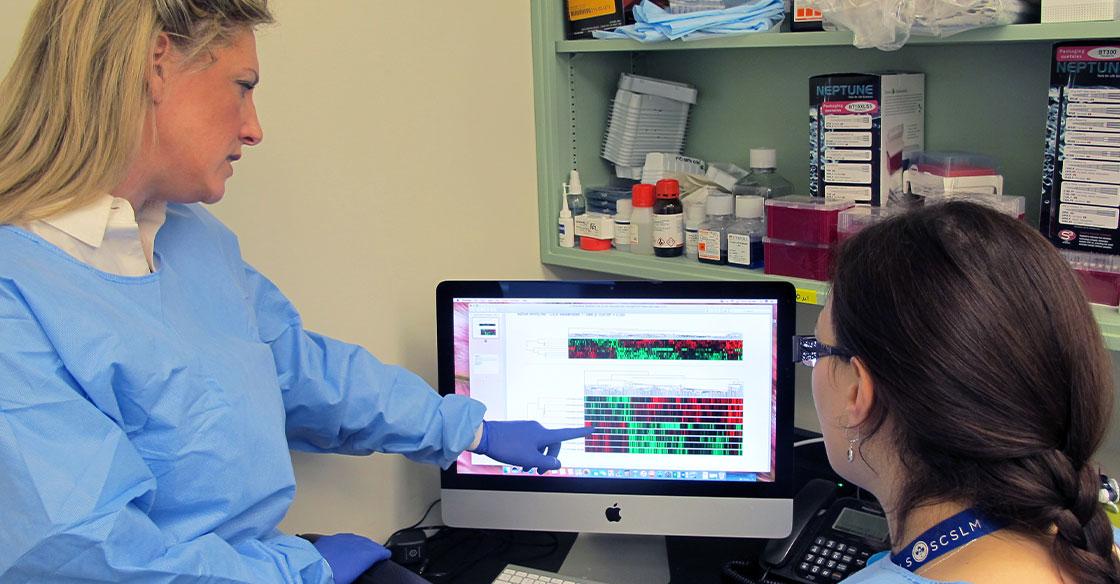
Originally published on qe2times.ca.
Infectious diseases specialist Dr. Lisa Barrett is studying the blood of patients with chronic viral infections to learn how the immune system becomes worn down.
“It takes decades for the immune system to deteriorate in a healthy person—we need a model of accelerated aging,” explains Dr. Barrett, who divides her time between a busy infectious diseases clinic at the QEII Health Sciences Centre and her lab at Dalhousie Medical School.
“Chronic viral infections, like HIV and hepatitis C, provide us with that model. They put so much wear and tear on the immune system, it ages prematurely.”
Dr. Barrett and research scientist, Dr. Sharon Oldford, have found that the immune cells of patients with HIV and hepatitis C look and act a lot like those of much older people who are virus free. In particular, the killer T-cells of both groups of people are covered with molecules that inhibit immune response. As a result, vaccines aren’t able to stimulate adequate immunity and they fall prey to infections.
The researchers want to find a way around this problem. Among many projects, they’re exploring immune exhaustion and poor vaccine response in HIV infection, with support from the NSHA Research Fund.
“We’re assessing many types of immune cells in HIV-positive patients, assigning an immune profile and ‘immune age’ to each individual, and tracking them over time,” says Dr. Barrett. “One of our goals is to learn which aspects of immune aging are associated with robust or weak responses to vaccines, so we can find a way to improve vaccine response.”
The same mechanism could be harnessed to improve vaccine effectiveness in older patients.
“Infections are a leading cause of hospitalization and death in older people,” notes Dr. Barrett. “If we can make vaccines work better for them, it would save years of good-quality life and health system resources.”
The researchers even aim to reverse immune-system aging.
“We see that immune-aging is largely reversed when patients with chronic viral infections are treated with potent new antivirals,” Dr. Barrett explains. “By tracing how this immune-age-reversal process unfolds in patients with chronic infections, we hope to learn how we can produce the same effect in the general population as people age.”